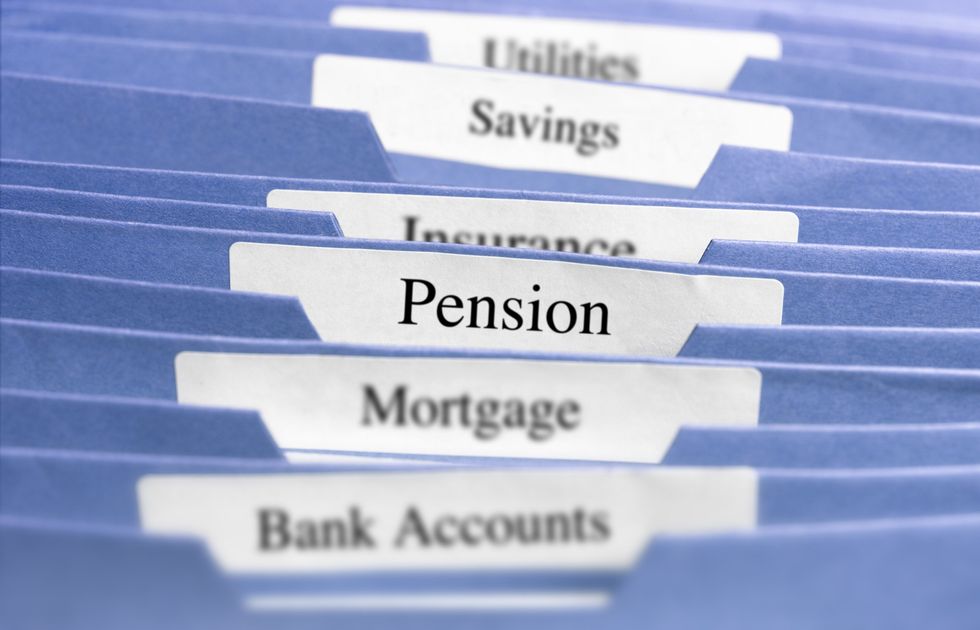High earners warned they must make 'tough decisions' now
GETTY
The cost of a comfortable retirement income is at £38,662 per year for a single person and £58,480 for a couple, new figures have shown
Don't Miss
Most Read
Trending on GB News
Pension savers are warned they are in for a "nasty shock" when it comes to their lifestyle in retirement unless they can start plugging the gaps in their SIPPs and workplace pensions.
Over two-thirds of the highest earning households are on track for a moderate retirement income, but under the surface an expert has waned even this is not enough.
Currently 69 per cent of higher-earning households are on track for a moderate retirement income of £25,000 per year for a single person and £36,480 for a couple, recent data from the HL Savings and Resilience Barometer has shown.
Although 69 per cent may seem like a high percentage of people, Britons are urged to really understand their lifestyle needs in retirement so they know what to expect.
Only 39 per cent are currently on track for a comfortable retirement income of £38,662 per year for a single person and £58,480 for a couple.
With the amount being under half, there is still much that needs to be done across the board and there are things people can do to help fill the gaps.

Only 39 per cent are currently on track for a comfortable retirement income
GETTYHelen Morrissey, head of retirement analysis, Hargreaves Lansdown said: “Well over two-thirds of the highest earning households are on track for a moderate retirement income.
"On the face of it this looks good but dig a bit deeper and there’s a nasty shock in store. A moderate retirement costs £25,000 per year for a single person and £36,480 for a couple and the reality is higher earners will be used to spending much more than that.
"Our modelling puts the cost of a comfortable retirement income at £38,662 per year for a single person and £58,480 for a couple.
"This is probably far closer to meeting the lifestyle expectations of higher earners, but with only 39 per cent of this group on track, it means there are some tough decisions in store for many unless they can start plugging the gaps in their SIPPs and workplace pensions."
Fill the gaps to your desired retirement lifestyle:
1. Britons are urged to take the opportunity to increase their contributions every time they get a new job or pay rise as this will boost their pension over time.
Higher earners will benefit from tax relief on their contributions of 40 per cent, or even 45 per cent so it’s an "extremely tax efficient way to build your wealth".
2. Britons who receive a bonus can contribute a portion of that to their pension which can make a huge difference. Their employer may also add national insurance savings.
3. Morrisey said: "It’s also well worth checking whether your employer is willing to contribute more to your pension if you increase yours.
"This is known as the employer match and if it is available and you have the spare cash it is a great way of adding significantly more to your pension without necessarily having to put in much more yourself."
4. Britons are urged to plan ahead and think about when and where they’d like to retire.
Income targets can prove really useful in terms of helping people to think about what they want their retirement to look like and how much it is likely to cost.
5. Individuals are encouraged to complete a state pension forecast.
6. Another way to boost one's pension pot is to track down lost pots which can add thousands of pounds to one's overall pension.
Consolidation has benefits, so people have an overarching view of what they have though it’s important to highlight that people need to make sure they aren’t incurring expensive exit fees or losing out on useful benefits such as guaranteed annuity rates by doing so.
7. Morrisey continued: "Once you know what you’ve got you can use pension calculators to see how much income you are on track to receive and model the impact of putting more in if you are behind.
"Checking in periodically is a great way of making sure you are on track to receive the retirement income you need. These are tips that can improve your retirement resilience regardless of whether you are a high earner or not.”







